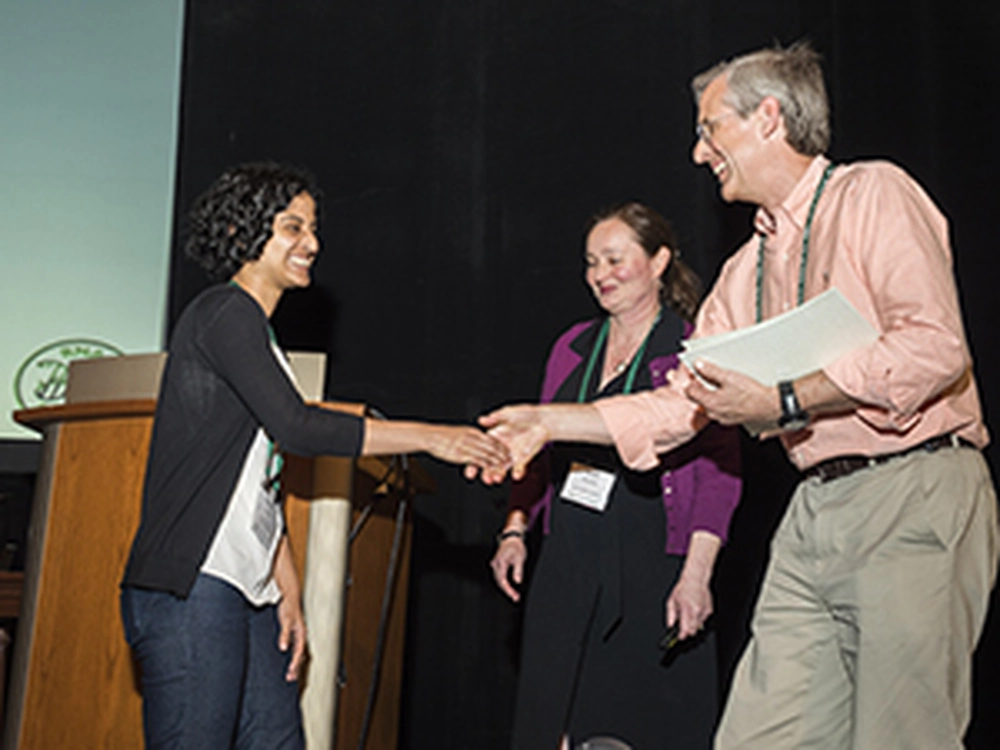
Amruta Bhate, a 3rd year biochemistry graduate student in the Kalsotra lab, has won the best poster award at the 2015 Annual RNA Society Meeting for her discovery of a previously unexplored function for alternative splicing in liver maturation.
Alternative splicing is a regulatory mechanism by which one gene produces more than one protein providing means to generate protein diversity in higher organisms. Amruta’s work studies the genetic mechanisms that control liver development after birth in mice and humans.
“The liver is an amazing organ, not only because it is the metabolic powerhouse of the body, but also is a rare mammalian tissue that can regenerate itself,” she said. “Unfortunately, this regenerative capacity fails during most chronic liver disorders. That’s why it is of great interest to study the molecular underpinnings that enable the liver to regenerate and perform all its functions perfectly.”
Amruta recently presented her results at the 2015 Annual RNA Society Meeting where the leading experts in the field appreciated the significance of her findings, and presented her with the best poster award in the interdisciplinary RNA research category. The RNA Society is a non-profit, international scientific society with more than 1500 members dedicated to fostering research and education in the field of RNA science. The Society’s annual meeting attracts top researchers from all across the globe, with presentations detailing the very latest discoveries in this field. The Society offers a small number of merit-based cash awards ($200) to young scientists. Young scientists are invited to submit applications and abstracts detailing their current research, and a committee of scientists selects the winners based on the quality of the research.
“We have just opened the door into getting insights on how alternative splicing controls liver maturation and function,” said Amruta. “I am very excited to study this further as this might reveal unanticipated roles for splicing regulation in liver regeneration and hepatocellular cancers.”
Amruta credits Dr. Kalsotra for his excellent mentorship and support. “I have fun while working because of the great lab environment, where everybody is always ready to help with experiments and bounce off new ideas,” she said. “Our motto is ‘Work hard, and party just as hard!’” Along with an “awesome” group of people in the lab, Amruta appreciates the MCB school at Illinois, where the “faculty are ready to help out, be it sharing equipment, reagents or just giving advice, she said. “This open, collaborative atmosphere has really made me feel at home and has helped me learn so much.”